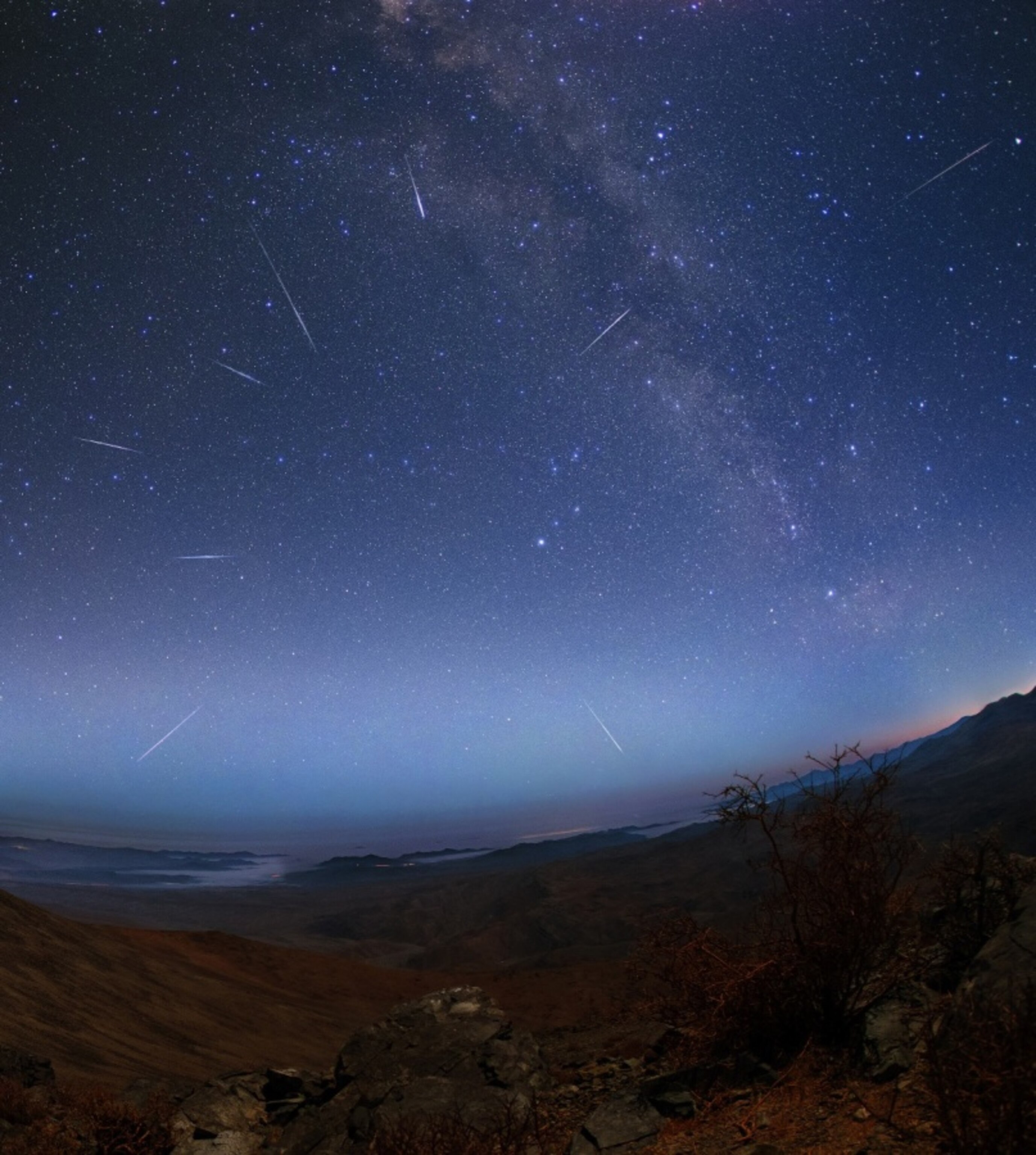
Famous meteors peak, and more top stargazing events in May
A big, bright asteroid and a planetary bonanza will also entice space fans to look up this month.
This month, look for ancient bits of Halley’s comet raining down on Earth, along with a series of eye-catching planetary pairings and a chance to spy on a gorgeous swarm of stars. You’ll even be able to hunt down a Texas-size asteroid as it sails across our night skies.
So dust off those binoculars, and mark your May calendar.
Venus grazes the moon—May 2
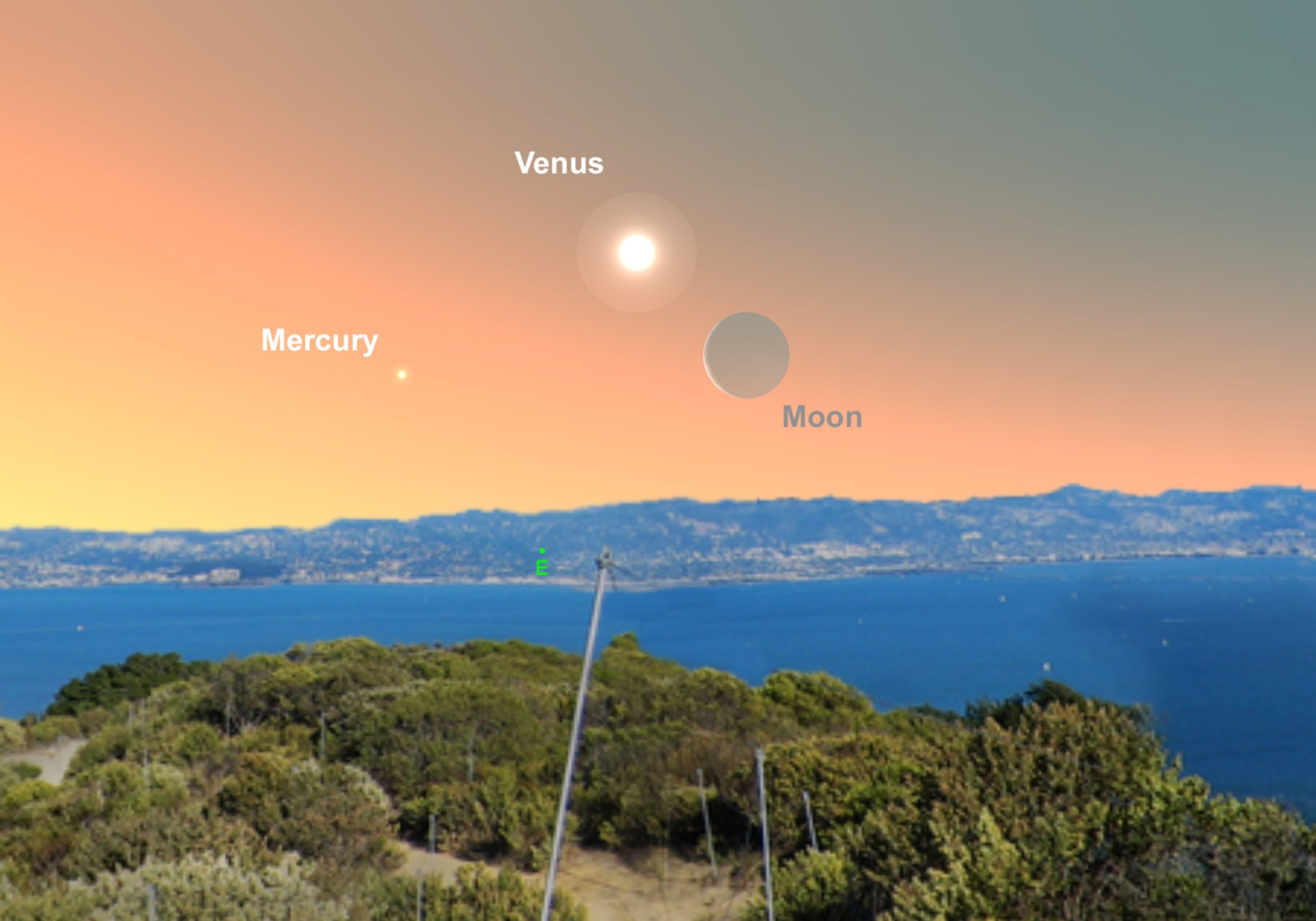
Venus will be a brilliant sight in the early morning sky throughout the month, appearing as the most prominent celestial object until sunrise. But on May 2, it will form a particularly spectacular duo with the whisper-thin crescent moon. The cosmic pair will be separated by only two degrees, a gap no wider than your thumb held at arm’s length, and will make for a great photo opportunity.
Mercury meets the moon—May 3
The innermost planet, Mercury, is small, dim, and close to the sun, which means it can be very hard to find in the night sky. But the planet is visible even with your naked eye if you know when and where to look.
On May 3, Mercury will be huddled up with the moon in the twilight sky about 30 minutes before sunrise. And all through the first week of May, you can most easily find it by using binoculars to scan the very low eastern sky, looking about eight degrees to the lower left of star-like Venus.
Eta Aquarid meteors peak—May 6
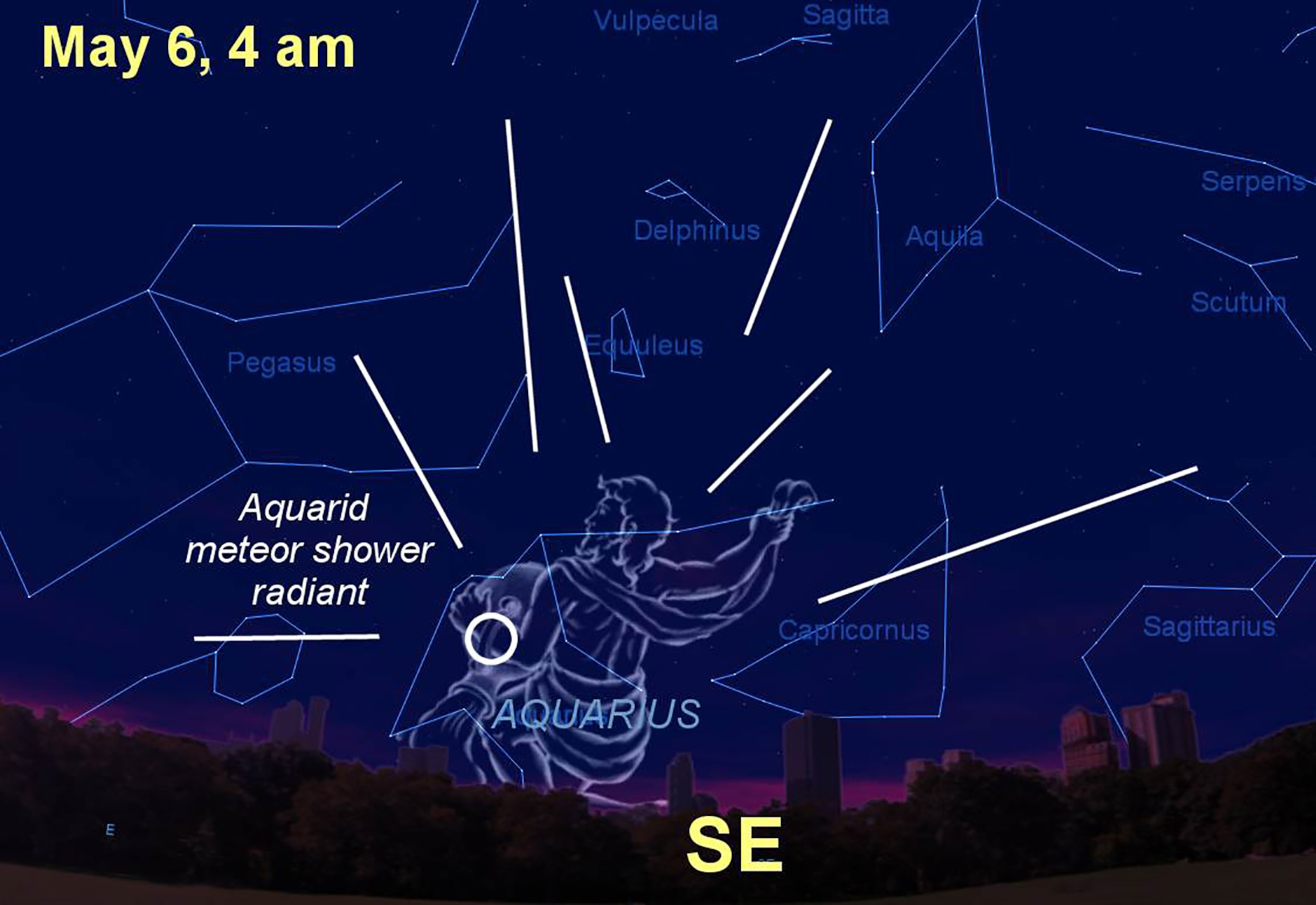
Before dawn on the 6th, look for the Eta Aquarid meteor shower to reach its peak, delivering as many as 20 to 30 shooting stars an hour for viewers under clear skies in the Southern Hemisphere. Sky-gazers in the north will see a more modest 10 to 20 an hour.
Even with fewer meteors in play, this annual shower is worth checking out, as it offers a rare glimpse at pieces of a world-famous comet. Meteor showers happen when Earth passes through streams of debris left behind by passing comets, and the Eta Aquarids are formed from the dust of Halley’s comet, a periodic space rock that is famously visible from Earth roughly every 75 years.
Meteors will appear to radiate from their namesake constellation Aquarius, which will be very close to the southeastern horizon. This year, the shower is expected to put on a great show, since it will be peaking under a dark, moonless sky.
Mars and the moon—May 7
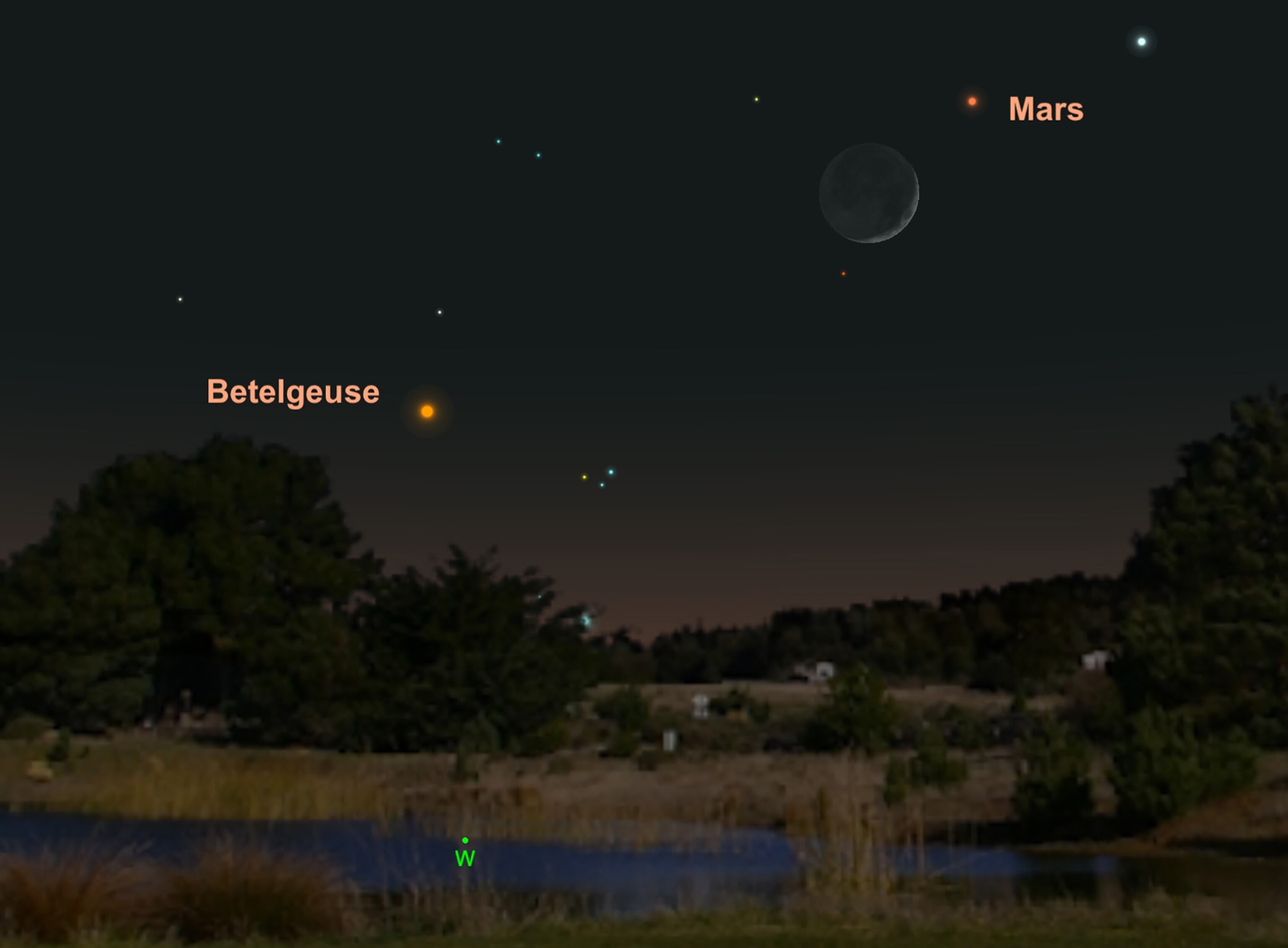
Hanging low in the western sky after darkness falls, Mars will be nestled within the setting winter constellation Taurus, the bull. On the 7th, look for a slender crescent moon to join the red planet. Binoculars trained on the moon will reveal its position within the V-shaped Hyades star cluster, which forms the face of the mythical bovine.
Buzzing the Beehive cluster—May 10
As soon as the evening twilight deepens on the 10th, look for the waxing crescent moon in the low western sky. Earth’s companion will be hanging out in the constellation Cancer, the crab, and will be paying a visit to the deep-sky jewel known as the Beehive star cluster.
With naked eyes under a dark sky, you can spot this star group as a faint cloud—even though it lies about 577 light-years away. If you can, make sure you check it out with binoculars or a small telescope, too, as the hazy cloud will explode into dozens of distinct stars with the slightest magnification.
Jupiter joins the moon—May 19-20
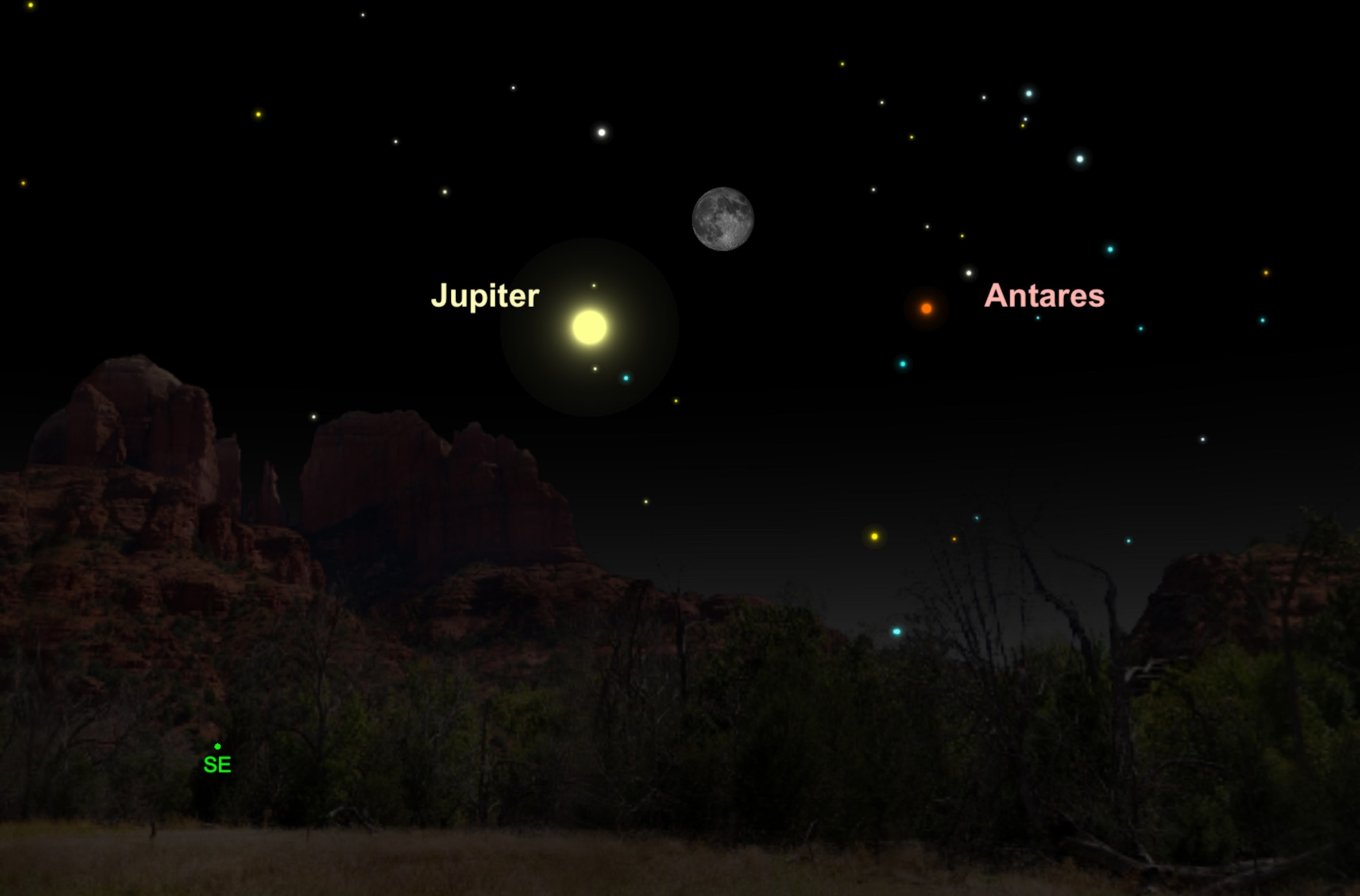
The largest planet in our solar system will shine bright in the low southeastern sky as evening twilight ends on the 19th. And by dawn on the 20th, Jupiter will dominate the southwest sky, paired with the waning gibbous moon. The eye-catching sight will be a great opportunity for photo hounds.
If you also scan the sky around Jupiter on a night when the moon is out of the way, you’ll find that the entire region is jam-packed with clouds of faint stars—the background glow from the dense plane of our Milky Way galaxy.
Ceres on display—May 28
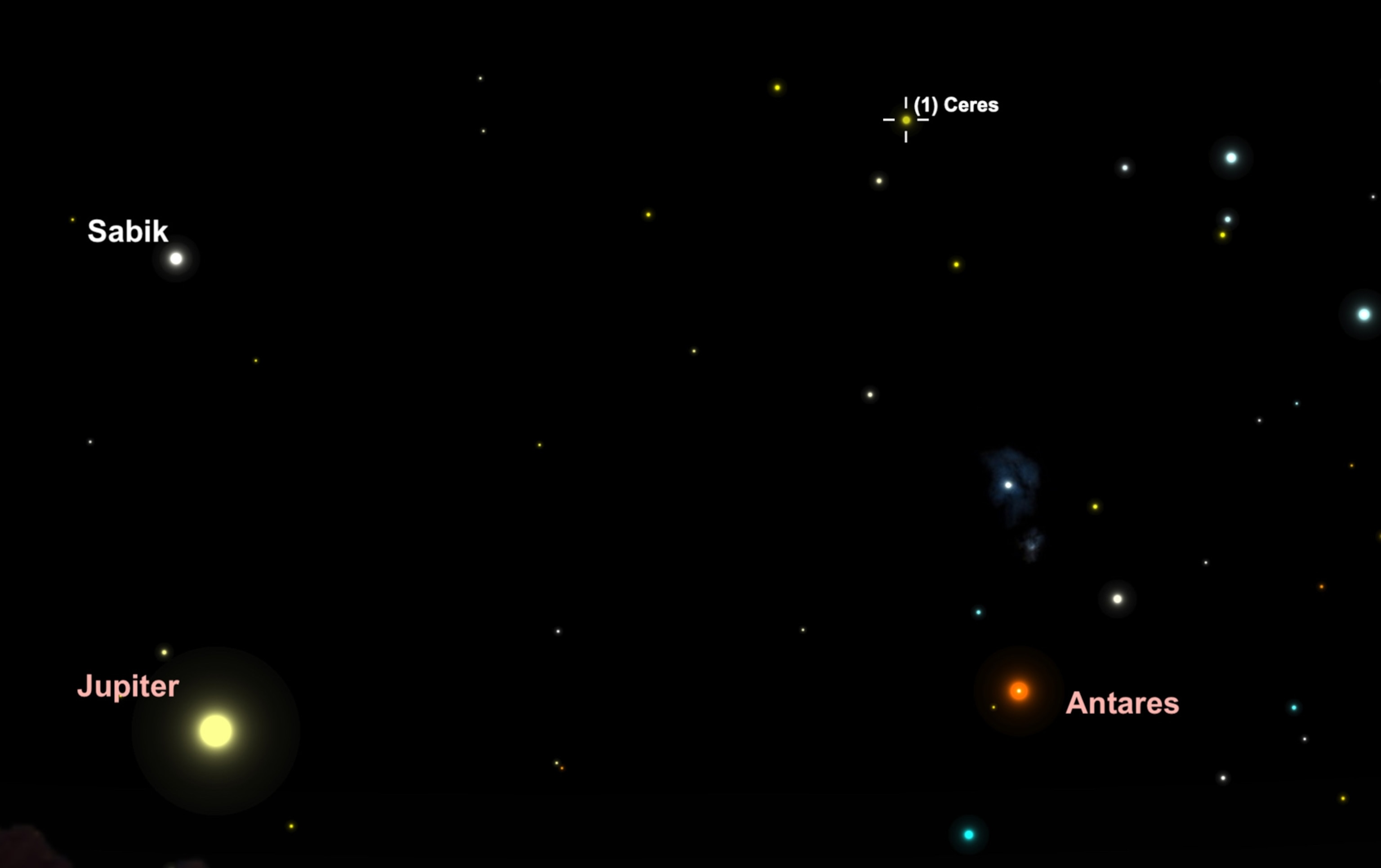
Got binoculars or a backyard telescope? Try hunting down the dwarf planet Ceres, the largest rock in the main asteroid belt. This faint star-like object will be sailing through the constellations Ophiuchus and Scorpius, which will rise above the eastern horizon around 10 p.m. local time and will reach their highest point in your local sky around 3 a.m. The best way to know for sure if you've snagged this Texas-size space rock is by recording your views from night to night to trace its movement in front of an otherwise static star field.
Clear skies!